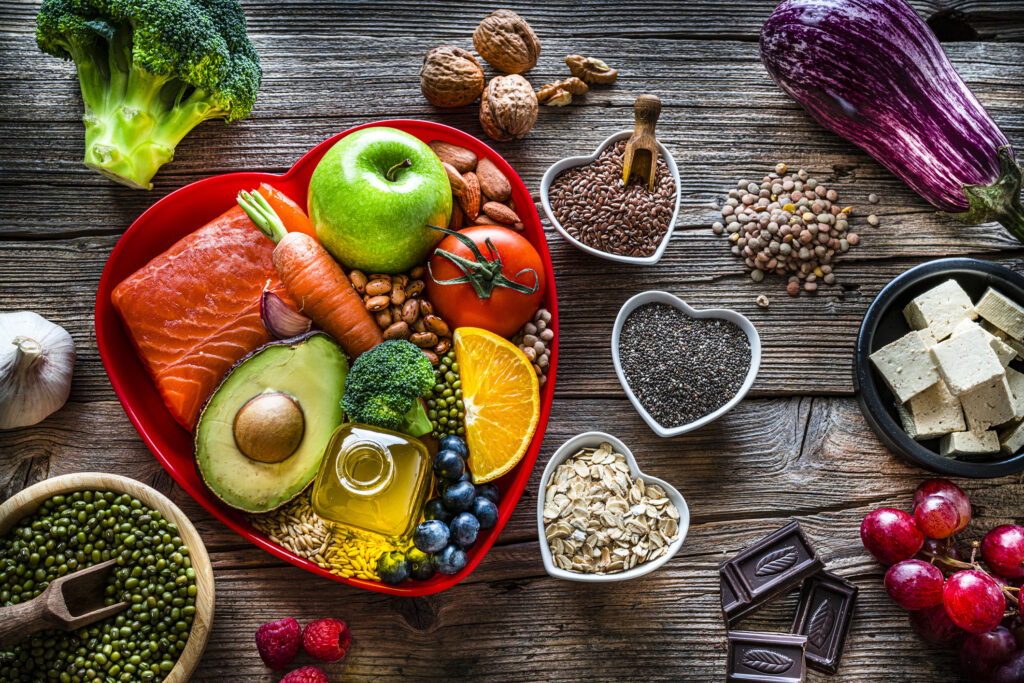Many convenience foods contain unhealthy saturated and trans fats that increase your “bad” cholesterol. Instead, try to eat more whole foods that provide heart-healthy fats and fibre, and use olive oil or nonfat cooking spray for your meals.
Processed meats like bacon, ham and salami are loaded with saturated fat and sodium. Instead, try chicken or turkey breast with the skin removed or baked sweet potato fries.
1. Processed Meat
Processed meats are red and white meat that have been preserved by salting, curing, smoking, or canning. These meats have been linked to cancer and heart disease in many studies. They also contain chemicals that are harmful to the body. When eating processed meats, it is important to limit how much you consume and stick with fresh whole foods.
Eating too many processed meats can increase your cholesterol levels and put you at a higher risk of heart disease. Processed red meats like bacon, hot dogs and salami are the worst offenders.
Choosing deli meats made with lean turkey or chicken can help you cut out some of the saturated fat and cholesterol in your diet. You should also avoid deli meats with a lot of fat or choose nitrate-free options. If you do eat processed meats, try to choose the low-fat versions or go for a vegan option.
Another way to reduce your cholesterol is to stay away from fried foods. Frying increases the amount of saturated and trans fats in foods. Replace fried foods with ones that are lower in saturated fat and cholesterol, like skinless chicken or turkey breast, fish and beans.
2. Saturated Fat
All foods contain fat, but some are better than others. Generally, saturated fats raise cholesterol levels, while unsaturated fats help lower them. It’s important to limit the amount of saturated fat you consume and to replace it with healthier unsaturated fats — such as olive, canola, safflower or sunflower oils; vegetable spreads; oily fish; avocados and nuts.
Foods high in saturated fat include animal products like meat and butter, as well as tropical oils such as coconut and palm oil. Eating too much saturated fat can increase your low-density lipoprotein, or “bad,” cholesterol levels and put you at risk for heart disease.
According to the American Heart Association, a person should get no more than about 6% of their calories from saturated fats. This translates to about 13 grams of saturated fat for someone who eats 2,000 calories daily. To reduce the amount of saturated fat you consume, choose skinless chicken and turkey more often, as well as plant-based sources of protein such as beans, lentils and peas. Also, switch from butter and stick margarine to soft, nonfat or reduced-fat margarine made with canola, safflower, sunflower or olive oil. Avoid fried foods, doughnuts and cookies and opt for baked goods that use unsaturated fats, such as muffins, pies, crackers and cakes.
3. Sugar
Cookies, cakes, doughnuts and ice cream are typically high in saturated fat as well as added sugars. The same goes for many processed snacks, fast food, fried foods and frozen meals.
Instead of these foods, stick with whole fruits (including dried), vegetables and whole grains; low-fat milk and yoghurt; poultry and fish; nuts and seeds; and oils made from avocados, canola, safflower and sunflower. These foods have a lower glycemic index and are better for your blood sugar and cholesterol.
If you have to eat processed meat or dairy products, choose the lean varieties and use them sparingly. And if you are a dessert lover, keep the cheeseboard in the fridge for a rare treat, and stock up on healthier alternatives like berries, fruit smoothies and whole-grain muffins. Keeping heart-healthy choices readily available will help make it easier to break sugary and fatty snacking habits.
4. Alcohol
Alcohol can raise triglyceride levels, which increase cholesterol levels. It also raises blood pressure and increases obesity risk. Alcohol also contributes unnecessary kilojoules to your diet. To stay healthy, most adults should drink no more than 10 standard drinks per week and not more than four on any one day.
Red wine contains resveratrol, which may reduce LDL cholesterol. However, it’s important to understand that drinking more than two glasses a day will cancel out these benefits.
Other alcoholic beverages, such as beer and distilled spirits (liquor), are high in calories and carbohydrate. Alcohol and carbohydrates can raise triglyceride levels, including cholesterol levels. This can lead to heart disease.
Dairy products are rich in saturated fats, which can contribute to high cholesterol levels. Replace the saturated fat in dairy foods with fish that are rich in omega-3 fatty acids, such as salmon, tuna and mackerel. These fatty acids can help lower your LDL cholesterol and protect against heart disease and stroke.
5. Vegetables
Eating vegetables that are rich in potassium is also a good way to reduce your cholesterol because this nutrient can help to regulate your blood pressure. Both Cenforce 120mg and Cenforce 150mg are wonderful medicines and work best for the treatment of better health.
Vegetarian foods are good sources of soluble fiber, which can reduce cholesterol by binding around it in your digestive tract and removing it with waste products. Some of the best sources of soluble fiber are beans (black, soy/edamame, kidney and lentils) and whole grains. You can add vegetables to your meals by eating them raw, steamed or roasted.
To reduce your cholesterol, make sure to eat plenty of fruits and vegetables, whole grains, nuts and seeds and fish that are high in omega-3 fatty acids. Limit processed meats, like sausage, bologna and salami, and choose lean cuts of chicken and turkey. Limit fried foods, and instead opt for baked or grilled.
6. Fat-Free Foods
Fat-free foods can help lower cholesterol levels, but they must be eaten in moderation. In addition, they should be read carefully to ensure that they aren’t loaded with sugar and other additives that can boost calorie intake. It’s also important to consider serving size. A single low-fat cookie may contain a fraction of a gram of fat, but if you eat a whole box, that small amount adds up to a significant number of calories and fat.
A diet that includes a variety of fruits and vegetables, lean meats and fat-free dairy products can help support healthy cholesterol levels. It’s recommended to eat at least five servings of vegetables and fruits each day (fresh, frozen, canned or dried), as well as at least three servings of whole grains, nuts and beans, fish and poultry. A person should also try to limit red meat and full-fat dairy products and choose polyunsaturated and monounsaturated oils such as canola, olive, peanut or safflower oil. They should also consider replacing solid fats with liquid vegetable oils when cooking or baking. Moreover, people should make sure to trim the fat from meats before eating them. This will reduce their cholesterol and saturated fat intake.
7. Nuts
Nuts are energy dense and high in fat, but this is mainly monounsaturated (in walnuts, hazelnuts and pecans) or polyunsaturated (in almonds, pine nuts and peanuts). Despite this, they discourage high LDL cholesterol and offer a good source of soluble fibre. They also contain protein, vitamin E and phytochemicals. They are best enjoyed in small quantities as a snack or with meals. Choose plain, dry-roasted nuts rather than salted or flavoured varieties as these tend to be loaded with salt and sugar.
A number of studies have linked nut consumption with a reduced risk of coronary heart disease. For example, in the Nurses’ Health Study, participants who consumed nuts two or more times a week had a 47% lower risk of death from CHD, compared to those who never ate them. Other research has shown that eating nuts is associated with a lower risk of other heart conditions, such as atrial fibrillation and diabetes.




